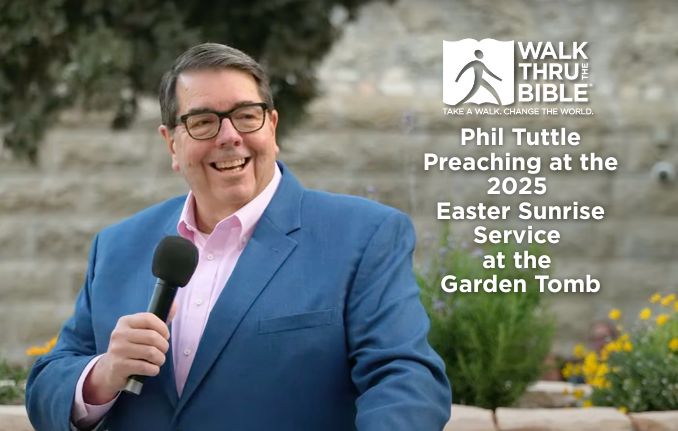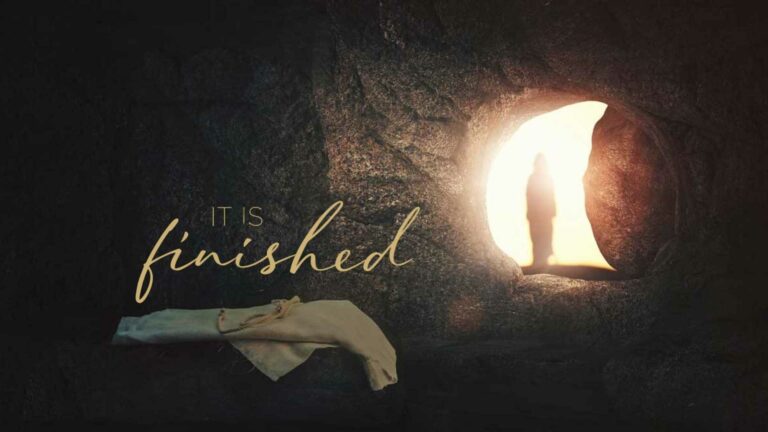
Join us at The Cove this Summer!
Join us for a week of teaching, time with God, fellowship, nature, and more at The Cove: A Billy Graham Training Center. July 21-25, 2025!
Read MoreThe sound of singing mingles with the patter of rain and drum rolls of thunder. A cappella voices caress the antiquated words with reverence and awe. It sounds like a lullaby but is really a lament. Picking the needle up from the groove, I carefully replace it so I can hear that song again.
I was 14 when I first heard “O Sacred Head Now Wounded”—not on a hymn or classical collection but on an Amy Grant album, My Father’s Eyes. It was beautiful and haunting. I knew nothing of the poem attributed to Bernard of Clairvaux in 1153 or of Bach’s arrangement and use of it in St. Matthew’s Passion. What drew me was the gorgeous harmony, the worshipful singing of those strange old words, and the rain and thunder recorded in the background. The sacred head, the head of the very Son of God, so tortured, the crown of thorns thrust into the tender flesh—how could it be? It was the same head Mary cradled in her arms as she nestled her newborn baby to her breast. The same head that had no pillow upon which to rest while He was going about His Father’s business, teaching and loving, serving and saving.
The Need
On the cross, not just His head but His body was wounded beyond recognition. I’m sure when I repeatedly listened to the words of “O Sacred Head” I wondered why. Why was it necessary for Christ to die?
The ugliness of sin sprouted in the Garden of Eden when the serpent seduced the first couple with half-truths. He planted seeds of doubt and they chose to nurture them. Before he slithered into their lives, Adam and Eve enjoyed such a close relationship with God that He walked with them in the Garden. But when the fruit had been tasted, everything changed forever. God’s holiness could not tolerate their sin, and they had to live with the painful consequences of their choice. And so do we.
In Genesis 12, God told Abraham He would make him the father of many nations. God kept His covenant and Abraham’s descendants multiplied. In order to bridge the gap that sin made between Himself and His chosen people, He established a sacrificial system. In Leviticus 17:11, the Lord says through Moses that the life of a creature is in its blood. “Without the shedding of blood,” says Hebrews 9:22, “there is no forgiveness.”
But of course after the sacrifice was made, the people would sin again. The entire Old Testament contrasts the unfaithfulness of the Israelites with the faithfulness of God, and every book points to the need for a Savior—for a perfect sacrifice, a Lamb without blemish, that would heal the break between God and man for good. Throughout His Word, God prepares His people for the arrival of a Savior. And this Savior came not only for them but for us as well. Our sin helped crown His head with thorns and nail Him to the cross.
After the religious leaders and Roman soldiers were done, the Son Mary had held as a newborn was dead in her arms. The Son who had lain in a manger would soon be lying in a tomb. But not for long, praise God, not for long.
The Result
When my husband and I bought a mosaic cross at an art show, we knew just where to put it: the foyer of our home. We wanted everyone who enters to know we are His. The mosaic is made of broken pieces of blue china and tile. Christ’s body, broken on the cross, gives us new life. When we give our hearts to Jesus, He takes the broken parts of our lives and makes them whole. Like the mosaic cross, we become a new creation, a new work of art by the Master.
As the writer asks in “O Sacred Head,” how can I possibly express my deep gratitude? I don’t have the words. Humbled, I just murmur “thank you” over and over. I know I can never thank Him enough, never love Him enough, but I want to die trying.
Excerpt from an article that first appeared in The Lookout, March 16, 2008. Used by permission of the author.
LeAnne Benfield Martin writes frequently for Walk Thru the Bible and on her blog about the beauty around us at www.glimsen.net.

Join us for a week of teaching, time with God, fellowship, nature, and more at The Cove: A Billy Graham Training Center. July 21-25, 2025!
Read More
As we observe Holy Week and celebrate our Risen Savior, I wanted to let you know that our Walk Thru the Bible President, Phil Tuttle, will be preaching the Good Friday Service (Friday, April 18) as well as the Easter Sunrise Service at the Garden Tomb in Jerusalem this Sunday.
Read More